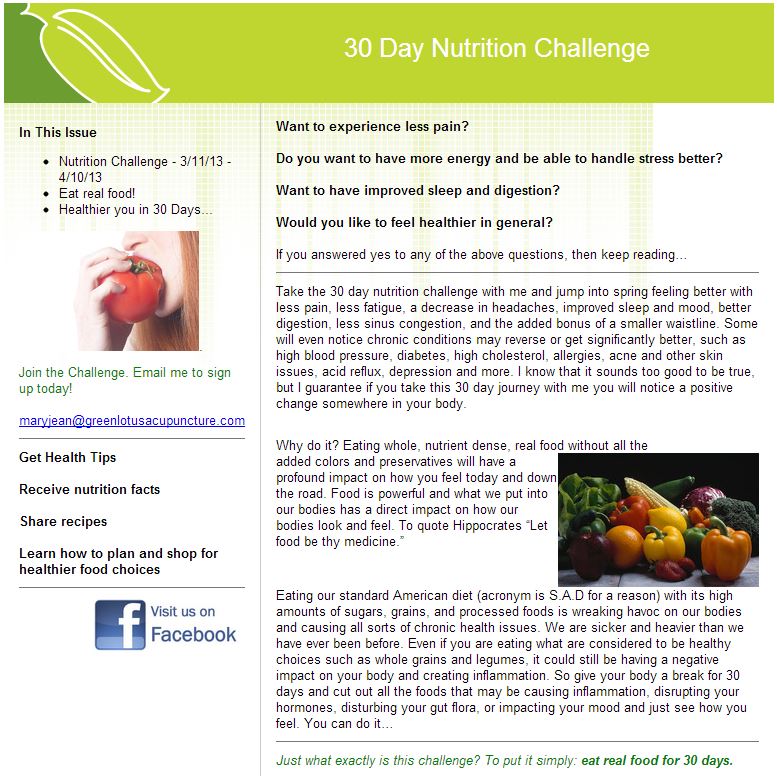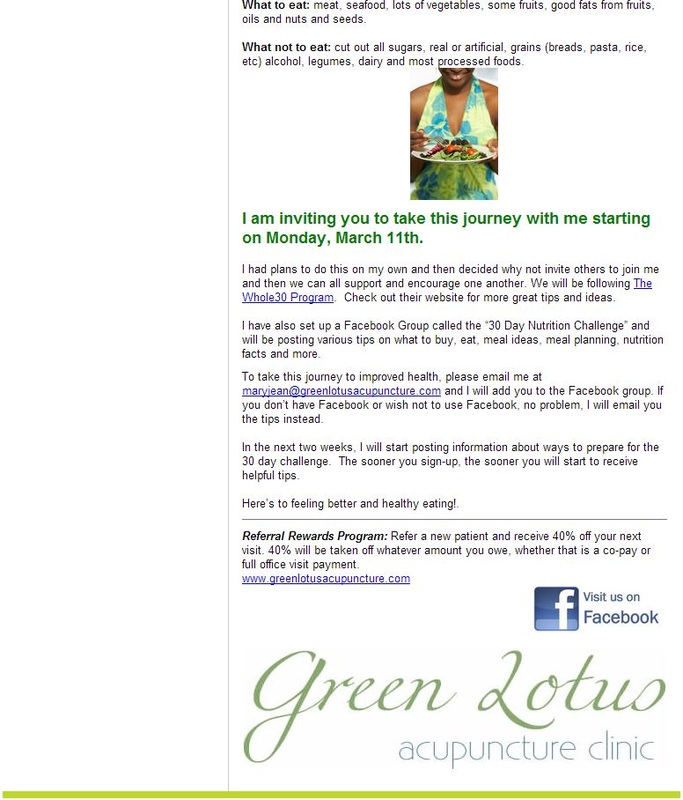|
If you’re an athlete, outdoors enthusiast or clumsy and prone to injuries, you’ve probably heard of RICE. It’s something that most of your doctors know, and what they have commonly told you to do: Rest, Ice, Compression, Elevation. Sprained ankle? RICE it. Torn rotator cuff? RICE it. What to do with your rice cooker? Rice it. Ok, joking on the last one. But in all seriousness, there is now a big revolution in the way we think about injury, inflammation, and what should we really do? Introducing MEAT: Movement, Exercise, Analgesia (pain relief), Treatment (alternating hot and cold, acupuncture, etc.). What’s the big change? Well if you look at the details of those acronyms, they’re almost opposite.
What was Rest is now Movement. What was Compression and Elevation (so sitting laid up somewhere) is now Exercise. These are some common recommendations that those of us in the alternative medicine field have known of and have been using for a long time. But now it is nice to know that my hesitance to fall in line with RICE recommendations is now more scientifically proven and that MEAT really is the way to go (sorry vegetarians, I didn’t make it up). And the last important details (or disclaimers, whatever you want to call it): -A sprained ankle may not just be a sprained ankle! There could be ligament or tendon tears, or a break in one of the many small ankle bones, so get it checked out by a healthcare professional. -Don’t push yourself to recover so quickly that you end up hurting yourself further. Yes, movement is beneficial after an injury, but that means some gentle walking or yoga-like activity, not a half-marathon the day after. I do offer a lot of support and treatments for acute injuries in my office, and also work closely with acupuncturists, massage therapists and chiropractors, so if you have any questions about this, please let me know! Hoping you recovery swiftly and fully, Dr. Angela Further reading on the research and clinical findings of MEAT- check out this website.
0 Comments
Starting in one week is the 30 Day Nutrition Challenge. Organized by Mary Jean Brinkman, acupuncturist and fellow Apex Wellness Center practitioner. March is a great time for evaluation, adjusting or otherwise tweaking your approach to food and exercise. This specific challenge is based on the Whole30 Program, as described below. Email Mary Jean to join the challenge and receive resources and support during the challenge.
Success is far more assured when the challenges and triumphs are shared with others. Don't wait, sign up is only open for another week. Email me or comment below if you would like access to any additional related links or resources or to be added to Mary Jean's contact list for future events and information. As always, to your good health! There are over 300,000 people in the US who suffer a stroke each year, especially those with a personal and/or family history of heart disease, diabetes and clotting disorders. The aftermath is uncertain and often ranges from paralysis to difficulty speaking and other far-reaching effects. Since the damage is already done by the time someone knows they have a stroke, prevention is key for this potentially devastating disease. Research published last week in the British Medical Journal found that those who ate fish 2-4 times a week had a 6% less chance of a stroke, and those who ate fish 5 times a week had a 12% less chance of having a stroke. Fish has been long recognized as an "anti-inflammatory" food, meaning that it reduces, rather than stimulates an aggravation of your immune system when you eat it. Just remember, that there is a wide diversity of fish out there, and be cautious in your choices.
Wild-caught Alaskan salmon, for example, has higher amounts of Omega 3 fatty acids and bioflavonoids than farmed Atlantic salmon- which is "pinked up" by artificial dye to look as healthy and fresh as its wild counterpart. And when considering species of fish and fishing practices, over fishing and other environmental concerns (not to mention heavy metal content such as Mercury), it can at first be difficult to find a healthy source of fish that you feel good purchasing. Take a look at Environmental Working Group's Safe Fish List and this Sustainable Seafood Shopping Guide for pointers, recommendations and further reading. Here's to your good health. |
Archives
June 2024
Categories
All
|
about the doc |
patient infocontact |
|
Privacy Policy
© Copyright 2011-2024, Dr. Angela Cortal ND LLC website content is for educational purposes only and is no substitute for medical advice (see the Terms of Use Agreement for this site), you must establish a doctor-patient relationship to receive that! |




